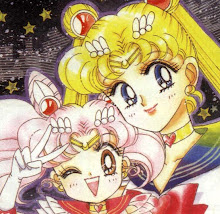Who started this?
As US President George Bush visits a memorial to the 1994 genocide in Rwanda, the BBC's Geoffrey Mutagoma finds that "genocide ideology" can still be found in the country's schools.
Mataba village nestles amid northern Rwanda's green mountain peaks and verdant valleys.
Peasants plant their potato crops along the undulating ridges of fertile volcanic earth.
But the roots of deep hatred are also growing fast in the local secondary school.
“ We found rubbish in the beds of genocide survivors ”
Mukabalisa Donatille
government investigator
"We first discovered the problem when we saw writing on the toilet walls saying Tutsis are bad and they should be killed," headmaster Mfitumufasha Eden told the BBC.
"We found students referring to colleagues as snakes."
Fourteen years after the genocide, research in 32 schools by a committee of MPs has revealed an ugly reality - ethnic hatred is still prevalent in most of them.
Graffiti
The school is badly under-resourced but as well as academic subjects, teachers are also focused on how to rid of ethnic hatred.
"Let's live in peace, tolerance, unity and reconcilation. Let's uproot the ideology of genocide," warns a sign in the picturesque school grounds.
But some Tutsis who survived the killings of some 800,000 people are being harassed by Hutu students.
Mr Eden said vicious graffiti was discovered on a daily basis until the school decided to call in the authorities.
But the more often the government officials came, the more students found different ways to harass their fellow pupils.
The methods included putting rubbish in the beds of genocide survivors, tearing their clothes, destroying their school books, mattresses and kit bags," explained Mukabalisa Donatille, who headed a team of politicians investigating genocide ideology.
“ We are still scared ”
Tutsi student
The intensity of the problem resulted in trauma to some students who survived the genocide and the school was closed down for two weeks for the investigation.
The parliamentary committee said that students were wearing different school uniforms, according to their ethnic groups but the headmaster denied this.
But he agreed that Tutsi students, who are supported by the Genocide Survivors Fund, can easily be identified because of their good quality uniforms.
"But other students usually buy this material as well, if they can afford it," he added.
The school is now open again but the issue is far from settled.
"We are still scared about this whole thing," one of the students said.
Echoes of the past
Most of the students here are too young to remember or understand the genocide in 1994.
The headmaster believes Hutu pupils learn to hate Tutsis from their parents at home.
Other schools have experienced the same problem.
In some, teachers were themselves accused of sowing the seeds of hatred among pupils.
In one school, Nyagahinika, investigators found teachers using publications from the National Revolutionary Movement for Development (MRND), Rwanda's former ruling party.
The MRND is accused of planning the 1994 genocide.
In a speech in parliament, Education Minister Jean D'arc Mujawamaria agreed that the ideology existed in some schools.
She said staff under suspicion were being prosecuted.
Members of parliament recently announced they would launch a massive campaign to uproot the ideology of hate, starting with school children.
The ministry of education says schools where ethnic division has surfaced should set aside two hours every weekend to discuss reconciliation.
Rwanda has made considerable progress in promoting co-existence between its people, but there is obviously a long way to go.
It took more than three decades to teach ethnic division in Rwanda. So it might take just as long to heal it.
But with this stirring of old evils amongst the young generation, it could even take longer.
Story from BBC NEWS:
http://news.bbc.co.uk/go/pr/fr/-/2/hi/africa/7246985.stm
Published: 2008/02/19 13:36:14 GMT
© BBC 2011
Lemon mousse with crumble and blueberries
13 years ago



No comments:
Post a Comment